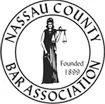Student Loans and Bankruptcy

Filing for bankruptcy can be a lifeline for those struggling with insurmountable debt, but when it comes to student loans, the process can be particularly challenging. If you are considering bankruptcy to alleviate your financial burdens, understanding how student loans are treated in bankruptcy is crucial. At the Law Office of Taran M. Provost, PLLC, we are committed to helping individuals in the Hudson Valley navigate the complexities of bankruptcy, including the unique challenges posed by student loan debt. See below for a discussion of this important topic, and contact our office to evaluate your situation with a skilled and experienced Poughkeepsie bankruptcy lawyer.
The Challenge of Discharging Student Loans in Bankruptcy
Student loans are generally more difficult to discharge in bankruptcy than other types of debt. Under federal law, student loans can only be discharged if the borrower can demonstrate “undue hardship,” a standard that is notoriously difficult to meet. This standard is applied through various tests, the most common of which is the Brunner test.
The Brunner test requires the debtor to prove three elements:
- Poverty: The debtor cannot maintain a minimal standard of living for themselves and their dependents if forced to repay the loans.
- Persistence: The debtor’s financial situation is unlikely to improve significantly over the repayment period.
- Good Faith: The debtor has made good faith efforts to repay the loans.
Meeting these criteria is challenging, but not impossible. Courts consider various factors, such as the debtor’s income, expenses, employment prospects, and efforts to repay the loans before filing for bankruptcy.
Alternatives to Discharge
For many, discharging student loans in bankruptcy may not be feasible. However, there are alternative solutions that can provide some relief, including Chapter 13 bankruptcy, income-driven repayment plans, and loan rehabilitation and consolidation:
Chapter 13 Bankruptcy
While Chapter 7 bankruptcy might not allow for the discharge of student loans, Chapter 13 bankruptcy can offer some respite. Under Chapter 13, debtors can propose a repayment plan to pay off their debts over three or five years. Although student loans are still considered non-dischargeable, they can be included in the repayment plan, potentially reducing the monthly payment amount and providing more manageable terms.
Income-Driven Repayment Plans
Outside of bankruptcy, federal student loan borrowers have access to income-driven repayment (IDR) plans. These plans adjust monthly payments based on income and family size and can offer lower monthly payments and eventual forgiveness of the remaining balance after 20 or 25 years of qualifying payments.
Loan Rehabilitation and Consolidation
Loan rehabilitation and consolidation are other options that can help borrowers manage their student loan debt. Rehabilitation involves making a series of agreed-upon payments to bring a loan out of default, while consolidation combines multiple loans into a single loan with a fixed interest rate. In our experience, these options are almost never more helpful than bankruptcy, but if you are dealing with a large student loan that you cannot get discharged, it might be worthwhile to explore this option with your attorney.
Seeking Professional Legal Help
Navigating the intersection of student loans and bankruptcy requires expert guidance. The Law Office of Taran M. Provost, PLLC, is dedicated to helping clients in Poughkeepsie and the Hudson Valley explore all available options for managing student loan debt within the bankruptcy process. Our experienced attorney can assess your financial situation, explain your options, and help you develop a strategy that best suits your needs.
If you are struggling with student loan debt and considering bankruptcy, here are some steps you might want to take:
-
Evaluate Your Financial Situation: Gather all relevant financial documents, including loan statements, income records, and monthly expenses.
-
Consult a Bankruptcy Attorney: Schedule a consultation with a knowledgeable bankruptcy attorney to discuss your options.
-
Explore Repayment Options: Investigate income-driven repayment plans, loan rehabilitation, and consolidation as potential alternatives to discharge.
-
Prepare to Prove Your Case: If you decide to pursue bankruptcy, be prepared to provide detailed information about your financial situation and efforts to repay your student loans.
Contact Poughkeepsie Attorney Taran Provost for Help With Student Loans in Bankruptcy
Student loan debt presents a significant challenge for many individuals considering bankruptcy. While discharging student loans in bankruptcy is difficult, it is not impossible. Understanding the criteria and exploring alternative solutions can help you find relief from your financial burdens. The Law Office of Taran M. Provost, PLLC, is here to support you every step of the way, providing the guidance and expertise you need to navigate this complex process.
For more information or to schedule a consultation, contact us today by calling 845-675-3243 for a free consultation. Let us help you take the first step toward financial freedom.



